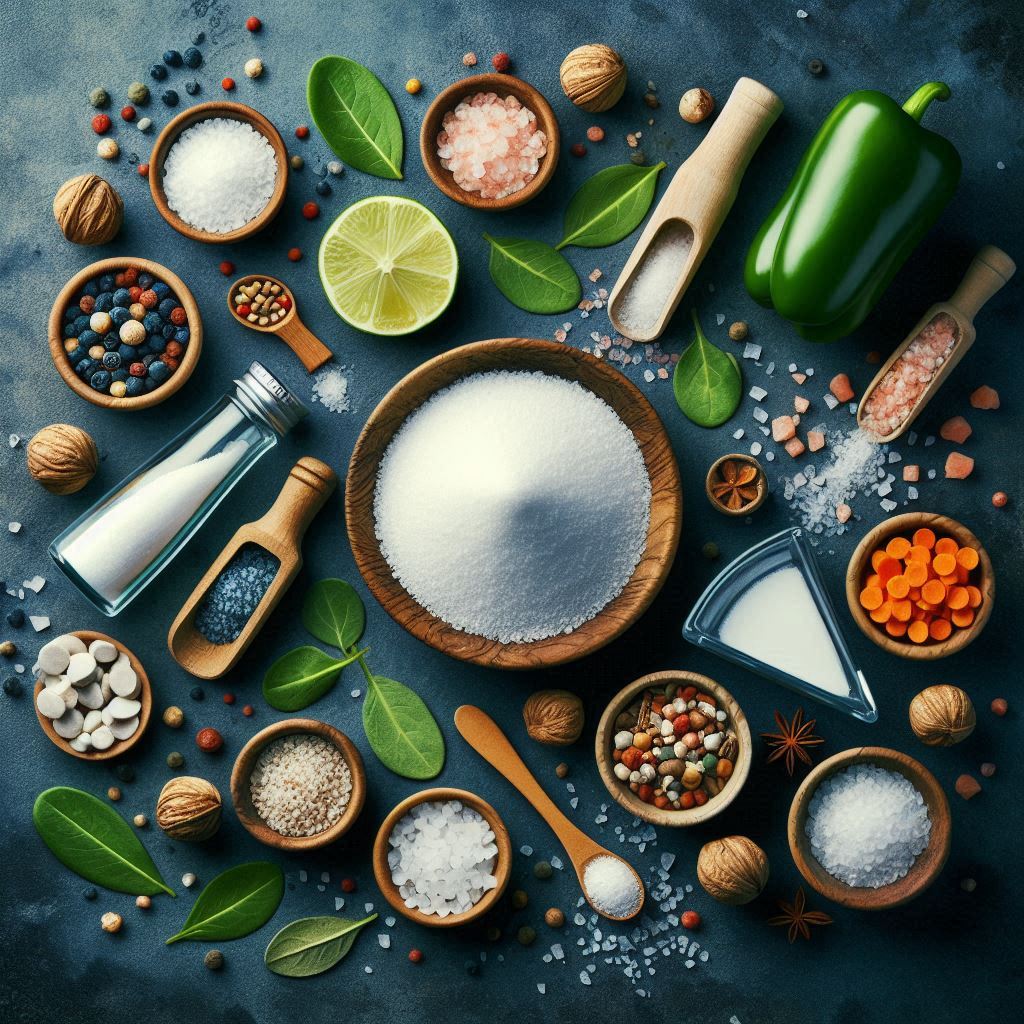
Low Sodium Salt Ingredients, Health Benefits & Nu-Salt Side Effects
Short Intro:
Low sodium salt is a popular alternative to regular salt, offering a balance between taste and health. This guide explores its ingredients, benefits, Nu-Salt side effects, and the role of potassium in your diet.
Introduction
The increasing global concern about high sodium intake has led many people to look for healthier alternatives. Low sodium salt is one such option, formulated with ingredients like potassium chloride, magnesium carbonate, and anti-caking agents. It provides the familiar salty taste while reducing sodium intake, which is linked to hypertension, kidney disease, and heart conditions. Products such as Nu-Salt are widely used, but questions remain: Is low sodium salt really healthy? What are the side effects of potassium-based substitutes? This article dives deep into these questions to provide a clear understanding.
SEO Snippet
Low sodium salt ingredients include potassium chloride, magnesium carbonate, and anti-caking agents. Learn whether low sodium salt is healthy, the benefits of potassium, and possible Nu-Salt side effects.
Low Sodium Salt Ingredients
Low sodium salt, also known as light salt or reduced-sodium salt, combines sodium chloride with potassium chloride and other compounds to lower sodium levels without compromising taste. Common ingredients include:
- Potassium Chloride (KCl): Provides a salty flavor while boosting potassium intake.
- Sodium Chloride (NaCl): Still present in smaller amounts for taste.
- Magnesium Carbonate: Adds slight bitterness to mimic natural salt flavor.
- Anti-Caking Agents (Calcium Silicate, Magnesium Oxide): Prevent clumping.
These ingredients make low sodium salt particularly useful for individuals with hypertension, cardiovascular disease, or those advised to reduce sodium intake. However, people with kidney problems must use caution, since potassium-rich salts can affect electrolyte balance.
Is Low Sodium Salt Healthy?
Low sodium salt can be a healthier choice compared to regular salt. Its benefits include:
- Reduced Sodium Intake: Helps lower risks of high blood pressure, stroke, and kidney strain.
- Improved Electrolyte Balance: Potassium chloride helps restore the sodium-potassium balance essential for fluid regulation and nerve function.
- Heart Health Support: By cutting sodium and increasing potassium, low sodium salt promotes cardiovascular wellness.
- Maintains Flavor: Allows people to enjoy taste without excessive sodium reliance.
Still, it is not a “one-size-fits-all” solution. Those with kidney disease or on certain medications (like ACE inhibitors) should consult healthcare professionals before making the switch.
Nu-Salt Side Effects
Nu-Salt is a popular low sodium salt brand primarily made of potassium chloride. While beneficial, it comes with possible side effects:
- Gastrointestinal Issues: Some may experience nausea, cramping, or diarrhea.
- Kidney Function Risks: Excess potassium can lead to hyperkalemia, especially in people with kidney disease.
- Drug Interactions: Potassium-sparing diuretics and ACE inhibitors can dangerously elevate potassium when combined with Nu-Salt.
- Allergic Reactions: Rare, but possible reactions include rash, swelling, or difficulty breathing.
- Taste Differences: Some people find potassium chloride slightly bitter compared to sodium chloride.
Is Nu-Salt Healthy?
When used properly, Nu-Salt can be a healthy alternative for reducing sodium intake. Benefits include:
- Supports Heart Health through reduced sodium and increased potassium.
- Provides Essential Potassium, improving nerve and muscle function.
- Restores Electrolyte Balance, countering the effects of high-sodium diets.
- Helps Maintain Flavor, making the transition to a low-sodium diet easier.
However, it is not suitable for everyone. Medical supervision is strongly recommended for people with kidney issues or those on potassium-affecting medications.
Potassium Salt Benefits and Considerations
Potassium salt (potassium chloride) is a valuable sodium alternative with benefits such as:
- Lower sodium intake while retaining salty taste.
- Boosts potassium levels, improving blood pressure control.
- Reduces risk of hypertension and stroke.
- Supports proper nerve, muscle, and fluid balance.
But caution is needed: Those with impaired kidney function or on certain medications should avoid excess potassium.
LSI Keywords
- salt substitutes with potassium
- reduced sodium diet
- Nu-Salt potassium chloride
- low sodium salt benefits
- potassium chloride side effects
- best alternative to table salt
- heart health and salt intake
- is Nu-Salt safe
External Links
For further trusted resources:
- American Heart Association: Sodium and Salt
- FDA: Sodium in Your Diet
- World Health Organization: Sodium Intake
Conclusion
Low sodium salt and Nu-Salt provide a practical way to reduce sodium intake while maintaining flavor. Their potassium chloride base supports heart health and electrolyte balance, making them valuable for people with hypertension or cardiovascular concerns. However, the side effects of potassium, especially in those with kidney disease or on potassium-sensitive medications, should not be overlooked. Used wisely and with medical guidance, low sodium salt is a healthier alternative that can support long-term wellness.
About Novin Trades
At Novin Trades, we provide in-depth research, market intelligence, and product insights across multiple industries — from food and nutrition products like low sodium salt and potassium-based substitutes to broader global trade trends.
Our team delivers fact-based analyses that help both consumers and businesses make smarter choices about health products, dietary alternatives, and raw material markets. Whether you’re exploring the benefits of salt substitutes or monitoring commodity trade, we connect reliable data with practical applications.
Stay updated with our latest health and trade-focused insights:
- Website: www.novintrades.com/reportages
- Telegram Channel: https://t.me/novintrades
By bridging nutrition, health, and trade knowledge, Novin Trades ensures you stay ahead in both personal well-being and global market awareness.

